It’s not often that a business summit starts with a yoga-like stretching and mindfulness session as an icebreaker, but Cult Creative’s first-ever Small Biz Summit isn’t like most business summits.
Organised in partnership with MyCreative Ventures, the Small Biz Summit is designed for creative entrepreneurs. This could range from those running art-related businesses to marketers, or even freelancers across various creative fields.
Speaking to Shermaine, the co-founder and CEO of Cult Creative, she shared with us that when talking to creative entrepreneurs, she often hears that they struggle with the business and financial side of things, even though they’re chock-full of creativity and ideas.
To help these sorts of creatives was part of the ethos behind creating Small Biz Summit.
The summit happened on September 20 from 9:30AM to 3PM, and brought together close to 150 attendees, Shermaine said.
1. Content creation isn’t just about social media
The first speaker of the day (who was also the one to lead the icebreaking session) was Rachel Lai, the co-founder of Wavemakers.co, an agency providing holistic marketing communications strategies.
Her workshop was titled The Importance of Content Creation for Your Small Biz, and covered all things content creation.
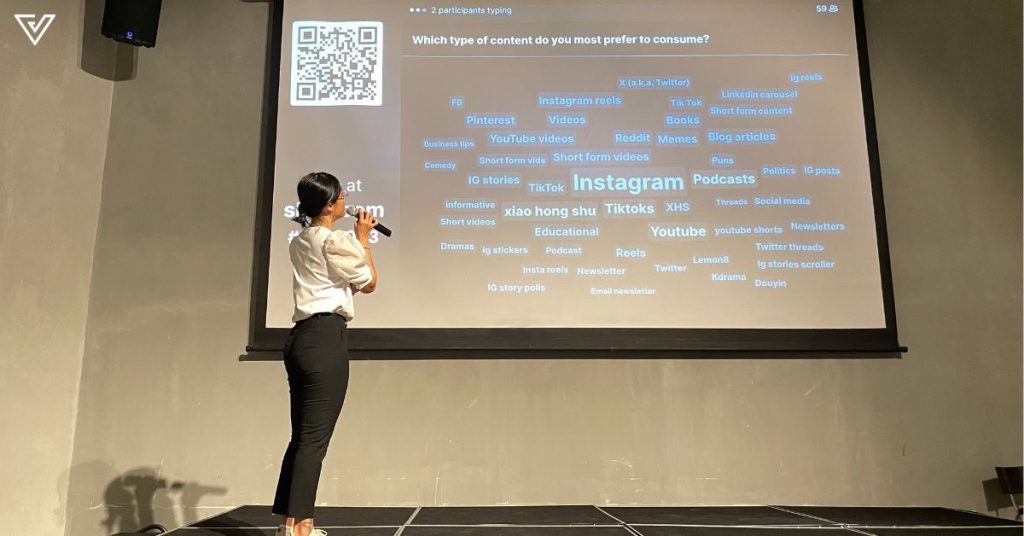
Rachel highlighted that content creation doesn’t just include posting on social media.
Many other meaningful ways to create content can include physical events, webinars, interviews, and much more.
Rachel also shared that when done well, businesses can even become their own communication medium nowadays and become a source of not just information but meaningful connection.
The content produced doesn’t have to be limited to product-related posts, nor do they have to just be tips and tricks. You can be a source of entertainment or a lifestyle brand, too.
One successful case study she provided was the Michelin Guide. Created by the France-headquartered tyre company, the Michelin Guide was such a successful product that it has taken on a life of its own over the years—a multigenerational campaign.
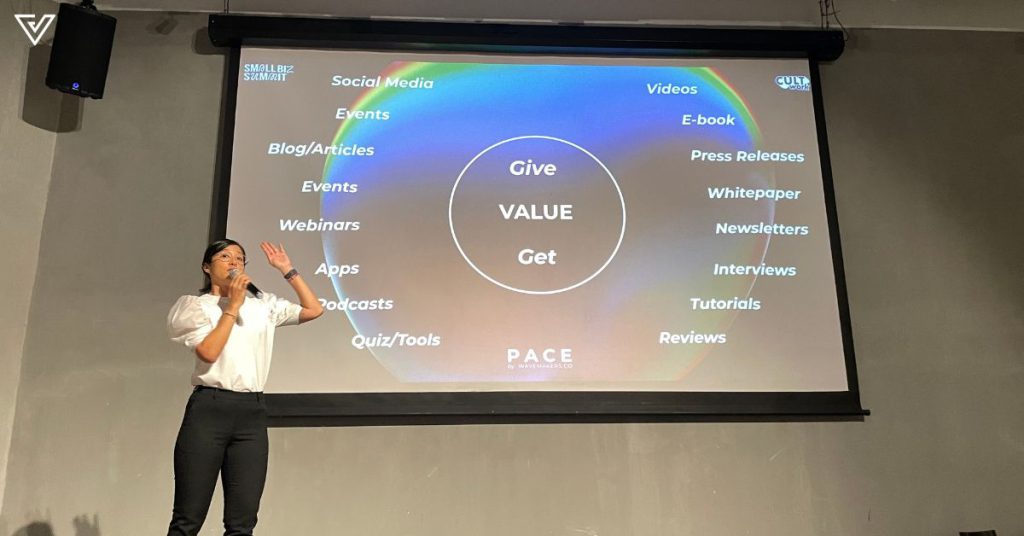
Other tips and insights that she provided included knowing not just your audience but also understanding their mindsets, creating a content calendar as well as content pillars to ensure consistency, collaborating with others, and also to consider outsourcing or repurposing content to maximise your resources.
2. Stay informed about the financing avenues available
As mentioned, many creative entrepreneurs struggle with the financial side of running a business.
This isn’t just because of a lack of experience or expertise, but rather also a challenge of the creative industry at large.
One of the speakers at the event was Funding Societies’ Jeffrey Chung, its head of digital financing. He pointed out that compared to stores that do retail or F&B, those providing creative solutions often have cash flow issues and irregularities due to the longer sale cycle.
This means it can be very difficult to secure bank loans.
Of course, there are other avenues to finance a business, including borrowing from friends and families or just putting down your own capital.
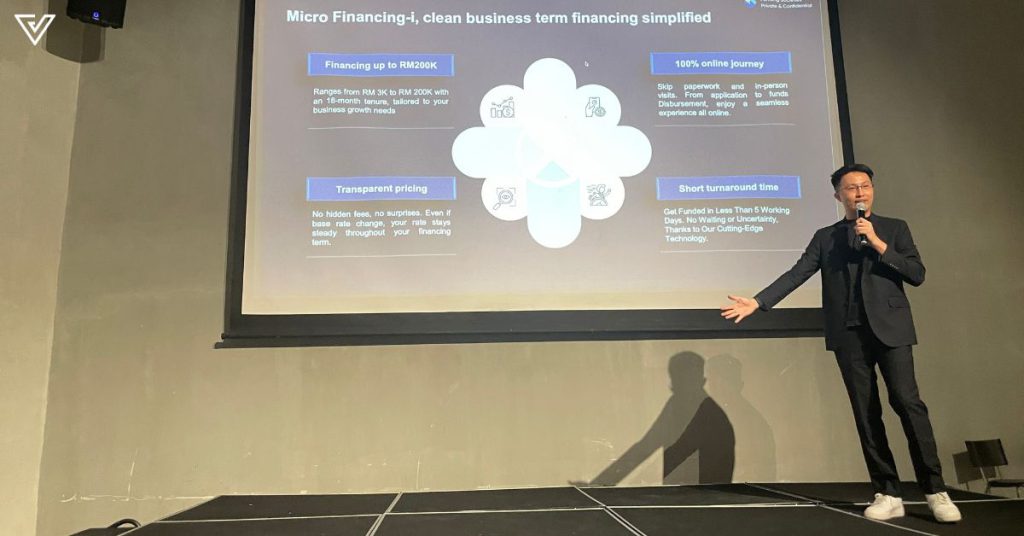
However, another alternative way to get financing is through digital financing platforms such as Funding Societies, who was also a sponsor of Small Biz Summit.
Jeffrey candidly shared that Funding Societies’ rates make them a more expensive option compared to your traditional banks, but the Securities Commission-approved platform boasts speed and accessibility, as entrepreneurs can easily apply for short-term credit online.
He pointed out that if entrepreneurs are in touch with a banker and can easily get a bank loan, they should certainly go for it. However, as one attendee opened up during the Q&A, these often just take too long.
He also talked about the option of raising funds by offering up equity, but that may not be the best option for those who want to maintain ownership in a business, especially if they see great scalability and potential in their brand.
3. Before expanding abroad, be sure your business is market-ready
The third speaker of the day was the other co-founder of Wavemakers.co, Nadzirah Hashim. The title of her workshop was Reaching Beyond Borders: Key Strategies To Capture an International Audience.
Taking a poll using audience interaction app Slido during the workshop, it showed that a big majority of the attendees were interested in expanding their business globally.
Since Wavemakers.co has not only helped many global brands establish a footprint locally but also has a presence in Bali, the team is certainly qualified to talk about expanding to a different country.
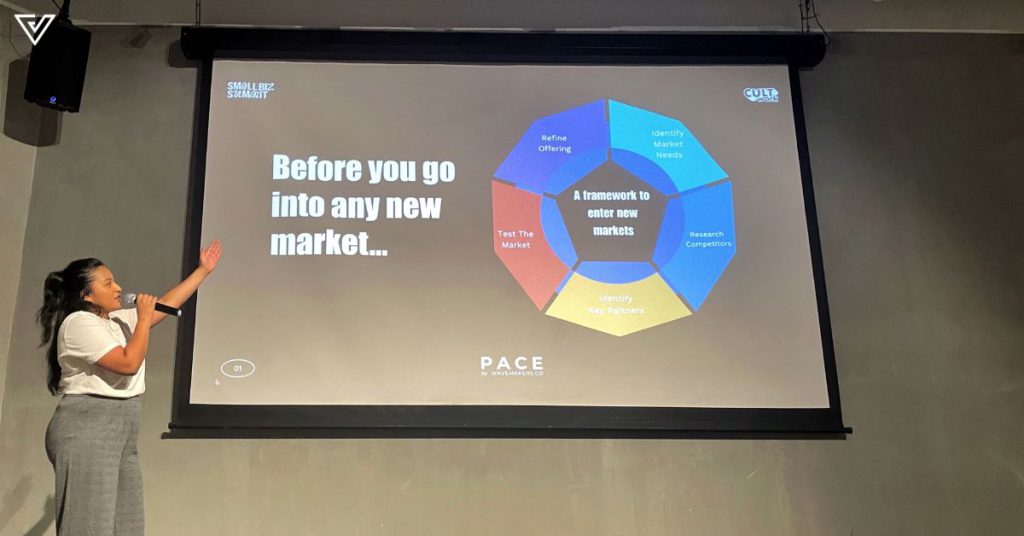
One of the main things Nadzirah taught attendees was the framework she uses to gauge whether a business is ready to go to market in a new country.
This framework includes: identify market needs, research competitors, identify key partners, test the market, then refine the offering.
Identifying market needs includes researching the pain points, answering how your brand can fit in, as well as creating buyer personas.
Researching competitors doesn’t just mean identifying who they are, but doing a SWOT (strengths, weaknesses, opportunities, and threat) analysis to see how your business can stack up against them.
Determining your key partners requires answering questions like why them, what you can offer them, and what are the terms.
To test the market, the steps include defining the test goals, deciding on the budget and timelines, determining the audience segment, then analysing the results.
As for refining your offering, Nadzirah actually provided a helpful chart that shows how both value and understanding needs to be present for a business to achieve product-market fit. This means the product shouldn’t be meaningless, and the messaging given should be easy to digest in the local context.
4. Leverage partnerships to increase your reach
The last event of the summit was the panel titled “Collaboration Over Competition: Leverage Brand Partnerships To Grow Your Own Business”.
Moderated by Shermaine, the panellists were Hugh Koh, the co-founder of Pestle & Mortar Clothing, Michelle Chai, the CEO of Kintry, and Ishaq Vadillo, the co-founder of Cha Cha Kombucha.

The objective of the panel was to highlight how partnerships can bolster a business, and how entrepreneurs can come to establish quality partnerships.
Each of the panellists have had their fair share of business partnerships. Streetwear brand Pestle & Mortar has worked with brands such as Heineken, Kintry with Uniqlo, and Cha Cha Kombucha with numerous hotels and cafes. These are just a small look into the collaborations they’ve each done.
By collaborating with other businesses, you are able to reach audiences that you never could’ve imagined. However, you need to find the right partner as the audience should still be relevant.
For Cha Cha Kombucha, it wouldn’t have been feasible to put his products in mamaks due to its price point, but hotel guests are likely more receptive to such drinks.
Hugh shared that brand association is a good way to get a foot in the door with various brands—this means leveraging collaborations you’ve done before to get in contact with your dream partners.
But as Michelle points out, it’s not always about working with bigger names, as working with smaller, local businesses can be beneficial too in fostering your community and branding.
5. Network, network, network
One of the biggest ways to start getting on people’s radar is to just network. PR skills was something the panellists discussed as well, with Ishaq saying that the only limitation here is just your level of energy.
Knowing Ishaq, Hugh also commended his PR skills, saying how much he connects with people across various industries. They shared how fostering genuine relationships with other entrepreneurs can really open doors, even ones in the far future.
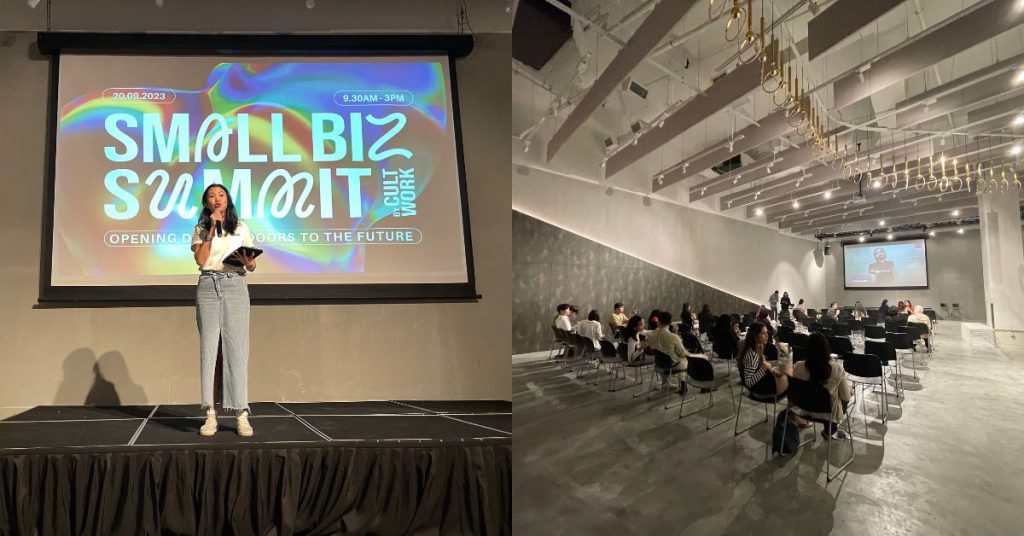
Events such as Small Biz Summit also serve as a way to meet likeminded people and form opportunities to collaborate.
Shermaine shared with Vulcan Post that there aren’t exactly concrete plans to host another one of the summits, but if they were to do so, it may become an annual thing.
For now, though the Cult Creative team is focusing on its new product, Cult Work, a content creation service that lets brands rapidly connect with content creators. It also offers a flat monthly fee for user-generated content (UGC) services.
- Learn more about Cult Creative here.
- Read other articles we’ve written about Malaysian startups here.









